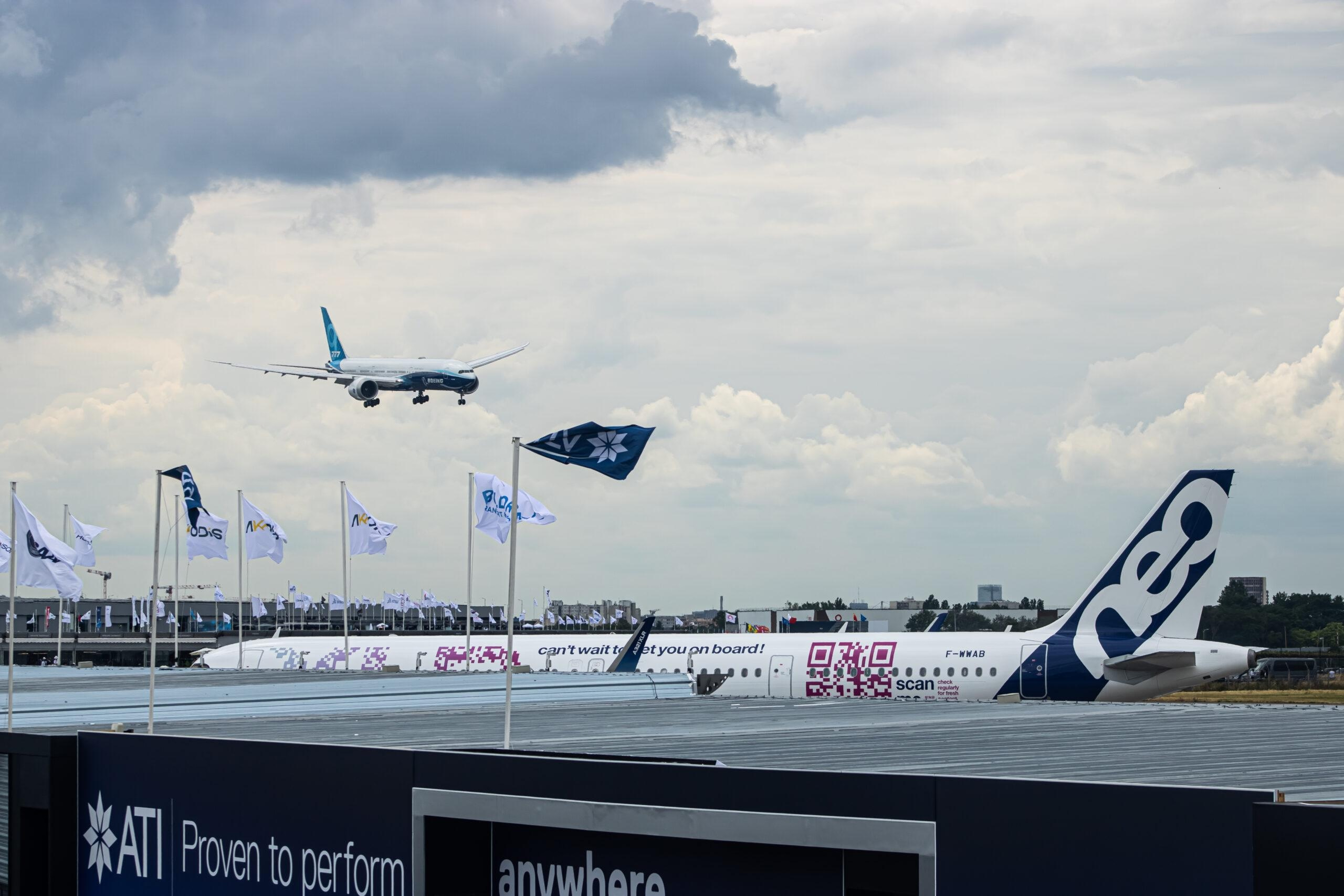AeroGenie — Ваш интеллектуальный второй пилот.
В тренде
Categories
Airbus Secures 238 Aircraft Orders on First Day of Paris Airshow 2025

Airbus Secures 238 Aircraft Orders on First Day of Paris Airshow 2025
Airbus commenced the 2025 Paris Airshow with a commanding display of commercial strength, announcing up to 238 new aircraft orders on the event’s opening day. These agreements, encompassing a broad spectrum of models from freighters to long-haul jets, underscore the sustained global demand for Airbus’s next-generation, fuel-efficient aircraft. The robust order book further consolidates Airbus’s position as a leader in sustainable aviation amid an evolving industry landscape.
Diverse Customer Commitments Reflect Industry Trends
The major orders were placed by a varied group of customers, including AviLease, Riyadh Air, ANA Holdings, and LOT Polish Airlines. These commitments highlight the aviation sector’s increasing emphasis on operational efficiency and emissions reduction. However, the positive momentum at the airshow was somewhat tempered by broader industry challenges, notably recent air disasters in India and escalating geopolitical tensions in the Middle East. While competitor responses remain uncertain, Airbus’s strong performance signals resilience in a volatile market environment.
AviLease’s Significant Expansion with Freighters and Narrowbodies
AviLease, the Saudi-backed leasing company, secured one of the largest deals of the day by confirming orders for 10 Airbus A350F freighters and 30 A320neo aircraft, with options to increase to 22 A350Fs and 55 A320neos. The A350F is distinguished by its enhanced cargo capacity and compliance with the upcoming ICAO 2027 CO₂ emissions standards, while the A320neo continues to dominate the single-aisle market due to its superior fuel efficiency and reduced emissions. AviLease’s order aligns with its strategic objective to develop a modern, environmentally friendly fleet serving both regional and global markets.
Riyadh Air’s Landmark Acquisition of A350-1000 Jets
Riyadh Air, Saudi Arabia’s newest airline, made headlines with an order for 25 Airbus A350-1000 aircraft, with options for up to 50 additional jets. This transaction marks Riyadh Air as the first Saudi carrier to operate the A350-1000, a long-range, widebody aircraft designed for international routes. The acquisition supports Saudi Arabia’s Vision 2030 initiative, which aims to transform the kingdom into a global aviation hub emphasizing sustainability and premium service standards.
ANA Holdings Advances Fleet Renewal with A321neo and A321XLR
Japan’s ANA Holdings expanded its Airbus fleet with an order for 27 aircraft, comprising 14 A321neo jets for All Nippon Airways (ANA) and 13 for its low-cost subsidiary, Peach Aviation. Notably, Peach Aviation will become the first Japanese airline to operate the A321XLR, the world’s longest-range single-aisle aircraft. This order underpins ANA’s fleet renewal strategy, which prioritizes sustainability and CO₂ emissions reduction, while enhancing regional connectivity in alignment with Japan’s environmental objectives.
LOT Polish Airlines Places Its First Airbus Order
In a significant milestone for both the airline and Airbus, LOT Polish Airlines placed its inaugural order for Airbus aircraft, committing to 40 A220 jets—split evenly between the A220-100 and A220-300 variants—with options to expand the order to 84 aircraft. The A220s are scheduled to begin replacing LOT’s regional jets in 2027, offering improved fuel efficiency and supporting the airline’s broader modernization efforts.
Despite the uncertain market conditions, Airbus’s strong showing at the Paris Airshow 2025 reaffirms the company’s ongoing momentum and reflects the aviation industry’s accelerating shift toward sustainable operations.

Emirates Unveils Cabin Design for New Boeing 777X

Eighteen Years On, the Airbus A380 Remains Central to a $34 Billion Airline

How a boom in luxury airline seats is slowing down jet deliveries

Navitaire Outage Attributed to Planned Maintenance

DigiYatra Debuts Outside Aviation at India AI Impact Summit

Vietnam Orders Strengthen Boeing’s Commercial Outlook

Airbus Signals Uncertainty Over Future A400M Orders

JobsOhio Awards $2 Million Grant to Hartzell Propeller for Innovation Center

Collins Aerospace Tests Sidekick Autonomy Software on YFQ-42A for U.S. Air Force CCA Program

How the Airbus A350-1000 Compares to the Boeing 777
